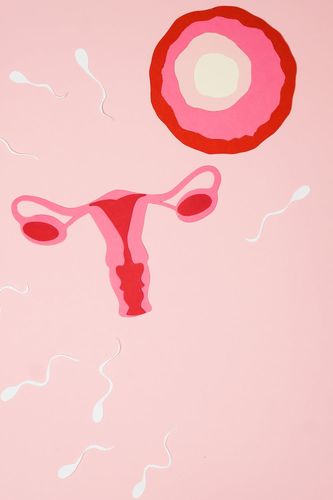The pain of expecting and planning for a child that never arrives is full of grief, full of sorrow, envy, hope, expectation, and anger. Parenthood begins long before conception, long before adoption, it begins in the prepared heart. As infertility numbers climb and statistics are looking grim, we must take a broader view, humans themselves have not changed so drastically in such a short amount of time, genetics have not so unfortunately been turned against fertility in the past 40 years. One in eight couples will experience infertility; defined as the diminished ability or inability to conceive or sustain a pregnancy after a year of regular intercourse without contraception. The broader view that we are going to develop today is the focus on nutritional and environmental stressors that have impacted fertility.
Nutritionally, the average american diet is desperate; with an average consumption of 152 pounds of sugar and 146 pounds of flour consumed in a year. The human body is completely incapable of handling this amount of inflammatory foods. Your body will compensate for this by continuing to pump insulin to combat the stressors, eventually causing you to become insulin resistant- meaning your body needs more but is less and less efficient at using it. With declining diet and quality of food: obesity has become a global epidemic, and a diet high in sugar and refined carbohydrates tramples weight, sugar handling, and fertility into the ground. As your steer clear of processed meats, sugar, alcohol, and excess caffeine, we want to be focusing on consuming a healing diet, chock full of fertility boosting foods and supplements.
The quality of foods that we eat is of utmost importance. Pesticides alter our hormones, affecting estrogen, and limiting reproductive function. A study that was done in 2018 assessed 325 women who received fertility treatments, the study focused on the pesticides found in the diets of these women. The outcome highlighted that the women who consumed fruits and vegetables with pesticides were 18 percent less likely to have successful implantation, and 26 percent less likely to have live births. Reread that, let those numbers sink in. Eighteen- Twenty Six percent less likely to give birth to a healthy child, eat organic. When eating fish, the quality that we are looking for is to consume wild-caught fish. These are full of omega 3’s which help to fight inflammation and allow the body to focus on regulating ovulation, optimizing fertilization, and allowing implantation. Meat and dairy should be eaten grass-fed, pasture raised, etc.
There are many fertility boosting foods like sunflower seeds, almonds, and beets- these foods are high in vitamin e and are critical for endocrine function. Vitamin C is another great focus for both men and women, a deficiency in this can create an inability for your body to absorb other nutrients. Folate is a vitamin that many focus on in their prenatal, yet most prenatals contain synthetic folate which is hard, if not impossible in most women to convert into a form that is bioavailable to their bodies. For folate it is best to look for a whole food sourced prenatal, as well as incorporating leafy greens, citrus, beans, and wheat germ. Eat a variety of fruits, vegetables, and quality protein sources for all nutrient absorption. Don’t overthink it.
When we are speaking of infertility there are four possible causes for the difficulty or inability to conceive. The man can have presented issues, the women, the two together, or unexplained infertility. One third of infertility cases are linked to male reproductive issues. Men are increasingly deficient in testosterone. Symptoms of this display themselves in weightgain, man boobs, low sperm count, decreased sex drive, and yes: infertility. Low testosterone is often accompanied and caused by hormone and insulin imbalance. Another study reported that sperm counts of men in North America, Australia, Europe, and NZ have dropped by more than 60% in less than four decades. This number is staggering. There are many reasons that male infertility is increasing: things like medications, infections, nutrition (like we spoke about) and genetic defects, but we are going to focus on environmental and lifestyle factors; the things that are in our control. One reason that scientists are suspecting lifestyle and environmental factors to be the main culprit is due to the rate at which it is increasing, it is impossible for genetics to be impacted so vastly in such a short time.
Environmental factors for men often look like endocrine disrupting chemicals that are found in hair gel, deodorant, sunscreen, lotion- anything placed on or in the body. Sadly, even the smallest amounts of triclosan, PFAs, and parabens cause disruption and can take decades to manifest symptoms or be removed from the body. A shocking study was done to investigate male infertility linked with ibuprofen, it was proven to mess with testicular function after only 14 days of use. Ibuprofen represses certain endocrine cells in the testes, stimulating pituitary hormones, and then causing the reproductive system to compensate by reverting to a state of hypogonadism. Stress is a serious environmental stressor resulting in lower sperm concentrations and quality, making it harder to fertilize an egg. Stress is serious, it impacts your health, your family, your fertility. Men: avoid EDCs, quit smoking, limit exposure to pesticides and endocrine disrupting chemicals, reduce stress, improve your diet, and opt for natural pain killers. That’s your fertility plan, go all in.
Now, to address infertility in females. A major cause is due to the increasing number of women that are affected by PCOS. The statistic of 12% of women being diagnosed correlates perfectly with infertility numbers in the United States. PCOS is full of awful symptoms including painful periods, heavy bleeding, hair loss, increased testosterone, weight gain, and infertility. PCOS is not an infertility guarantee, but it does cause a significant increase in odds. According to the CDC millions of women in America suffer from infertility- with numbers of women aged 15-44 being over 7.5 million who struggle to get or stay pregnant. PCOS is treatable, speak to your doctor, an NTP, or anyone certified to help. With an intentional shift in diet, hydration, stress, movement, and supplementation, you can see your life entirely shift. It is vital to get to the root of the problem.
From poor nutrition and emotional stress, to STD’s, thyroid disorders, candida, excessive exercise, obesity, and hormonal imbalances- infertility is here to stay. For stress; find activities and practices that you can implement into your daily life to reduce stress and be still. Sleep. Adequate and quality sleep is vital for improving fertility. The average woman gets 6.5 hours of sleep, this is not enough. According to the National Sleep Foundations, aim for eight hours or more per night. If you do not get enough sleep, your leptin hormone will go down and can negatively impact ovulation. Exercise is movement, and this is to be a part of our daily routines. It is necessary to engage in regular exercise to balance hormones and allow for healthy reproductive function from ovulation to conception, pregnancy, and delivery. Another great step is to supplement with natural fertility boosting supplements. Evening primrose oil can be taken daily for the first half of the woman’s cycle. Vitamin C is great to add into your routine, B complex vitamins, and vitamin e. Progesterone cream can be applied topically to help naturally balance out estrogen and progesterone levels. Everyday is a new day, a new opportunity to implement health promoting habits.
To finish with fast facts is also to recognize you don’t have to be one of these numbers. Studies show that 10-15% of couples in the US are infertile, 25% of infertile couples have more than one factor that contributes to their infertility, Male infertility contributes to ⅓ of couples struggling with infertility. You are more than a statistic, you are a capable, empowered person ready to make changes to get the best results and grow your family. Change your life, change your genes, change your outcome. 1. Fix your gut. 2. Exercise regularly. 3. Get sufficient sleep. 4. Control Stress. 5. Eat less sugar. 6. Take supplements. 7. Reduce environmental toxin exposure.
Citations:
“Navigation.” NTNU, Norwegian University of Science and Technology, 2010, www.ntnu.edu/news/hard-workouts-reduced-fertility.
Chiu YH, Williams PL, Gillman MW, Gaskins AJ, Mínguez-Alarcón L, Souter I, Toth TL, Ford JB, Hauser R, Chavarro JE; EARTH Study Team. Association Between Pesticide Residue Intake From Consumption of Fruits and Vegetables and Pregnancy Outcomes Among Women Undergoing Infertility Treatment With Assisted Reproductive Technology. JAMA Intern Med. 2018 Jan 1;178(1):17-26. doi: 10.1001/jamainternmed.2017.
5038. PMID: 29084307; PMCID: PMC5814112. Kristensen, David Møbjerg, et al. “Ibuprofen Alters Human Testicular Physiology.” PNAS, National Academy of Sciences, 23 Jan. 2018, www.pnas.org/content/115/4/
E715.full .Levine, Hagai, et al. “Temporal Trends in Sperm Count: a Systematic Review and Meta-Regression Analysis.” Academic.oup.com, Oxford University Press, 18 June 2017, academic.oup.com/
DocumentLibrary/humupd/PR/ .dmx022_final.pdf “Male Infertility.” Mayo Clinic, Mayo Foundation for Medical Education and Research, 13 Apr. 2021, https://www.mayoclinic.org/diseases-conditions/male-infertility/symptoms-causes/syc-20374773
Breus, Dr. Michael J. “Sleep Linked to Infertility.” HuffPost, HuffPost Contributor Platform, 17 Nov. 2011, www.huffpost.com/entry/sleep-
linked-to-infertili_b_260367 .“FastStats - Infertility.” Centers for Disease Control and Prevention, Centers for Disease Control and Prevention, 2 Dec. 2019, www.cdc.gov/nchs/fastats/
infertility.htm .













